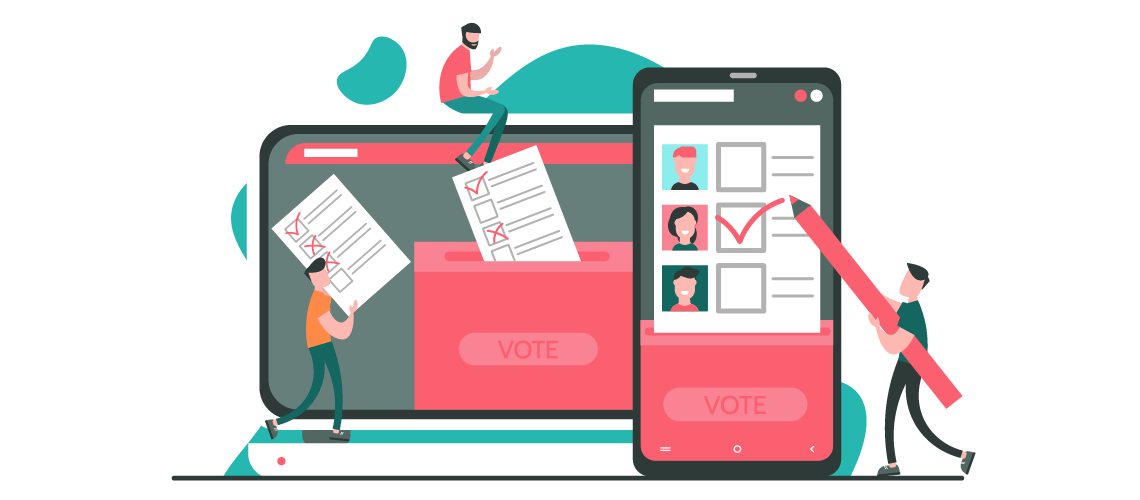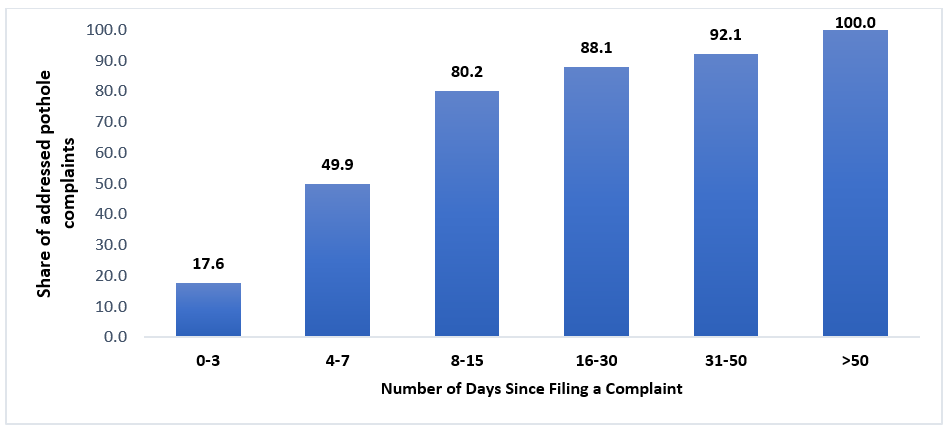 Online voting, elections, voting box with tiny people with decision. Political competition with modern system. White list newsletter on phone screen. © Aleksandr Merg/Shutterstock
Online voting, elections, voting box with tiny people with decision. Political competition with modern system. White list newsletter on phone screen. © Aleksandr Merg/Shutterstock
Over the last few decades, governments worldwide have been making great strides to engage citizens in governance processes that go beyond ballot box expression. The delivery of public services through private participation and participatory governance toolkits support traditional issues of voice and representation, transparency, and accountability. Institutionalizing the direct input of citizens in defining the need for specific services and enabling greater participation in service provision is also an important developmental goal for countries where there is little precedent for such efforts.
Digital technologies help governments achieve this goal because they drastically lower the cost of accessing and co-producing local information and services. Some countries have made significant efforts to harness the potential of digital technologies to mobilize civic action at the local level. Recent academic studies of urban governance in the UK and Argentina, for example, show that effective governmental responses on issues raised through digital channels reinforce citizens' participation, thus leading to better development outcomes.
In many other countries, however, there is little, if any, effect of using digital channels to mobilize citizens to encourage policymakers to improve public service delivery. The World Development Report 2016 suggests that the differing effects of digital governance across countries depend on the degree of government accountability in the first place. The report argues that while digital technologies have helped willing and capable governments better serve their citizens, they have not empowered citizens to make unwilling governments more accountable. The report also suggests that citizens' success in using digital technologies to improve service delivery depends on the context.
So when do governments become more willing to serve the needs of their citizens better? What conditions and specific issue areas facilitate the governments' reliance on digital technologies to improve service delivery?
These are the questions that motivate our study. Taking pothole complaints in Russia's capital city, Moscow, as an example, we argue that governments can capitalize on digital technologies to select issue areas of high salience for voters, and demonstrate effective governance to reap political rewards.
Moscow city authorities have actively developed digital instruments of governance and invested massive resources into promoting a 'smart city' agenda. The 2018 United Nations e-government survey of 40 cities across the world ranked Moscow as a leading city along with Cape Town and Tallinn in using information and communication technologies to deliver public services.
The digital platform for handling pothole complaints is easy to operate. Moscow residents have to download the mobile application and register on the platform with their mobile phone number. They can then easily send their complaints, selecting the type of problem they encounter and include a photo with the message.
We analyze the political effects of pothole complaints in Moscow. Road quality is an issue of high salience for Moscow residents. According to a recent poll by the Levada Center, one of Russia's leading polling agencies, roads and transportation (congestion, parking, and repairs), along with migration and health care, are the most important concerns for Moscow residents.
The Moscow government allocates vast resources to urban renewal and maintenance, particularly for road construction, management and repairs. Over the last decade, the city spent as much money on urban renewal as the rest of the country combined, allocating ten percent of its $40 billion budget on road construction and maintenance. Not surprisingly, the potholes are quickly fixed – 80 percent of recorded complaints are addressed in just two weeks, and half of them are resolved within a week.
Our study combines the big data with state of art econometric methods to establish the causal linkage between digital public participation measured by registered citizens' complaints about road quality and electoral outcomes. It shows that the incumbent Moscow mayor is politically rewarded for these outcomes.
We collected data on more than 200,000 online pothole complaints between 2012-2019 and analyzed it along with data on the 2013 and 2018 Moscow mayoral elections. We find that the timely delivery of public goods with high visibility, in this case potholes that get fixed quickly, results in more votes and a higher margin of victory. Controlling for the municipal and election-year characteristics, each pothole complaint is associated with an additional 29 to 44 votes for the incumbent and an 18 to 27 vote increase in the margin of victory.
Our findings show that digital technologies can be used actively by authorities on selected issues of high salience for the actual improvement of service delivery when the authorities are aware, and there are resources available for making the participatory system work by ensuring a high level of responsiveness. In such circumstances, governments can reap political dividends of the digitalized toolkit of participatory governance.





Join the Conversation